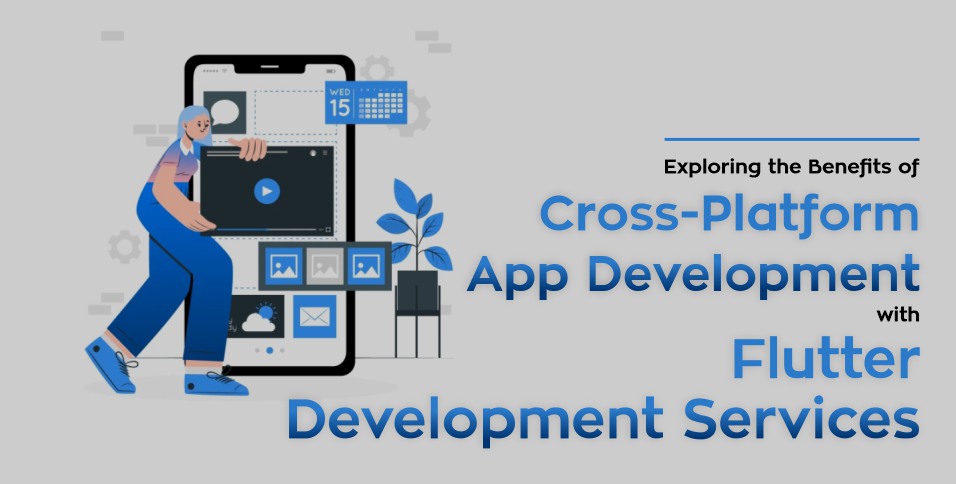Cross-platform mobile app development refers to the process of building mobile apps that can run on multiple platforms, such as iOS and Android, using a single codebase. Here are some benefits of cross-platform mobile app development:
Cost-Effective:
Cross-platform development can be more cost-effective than developing separate native apps for each platform, as it requires less development time and fewer resources.
Wider Reach:
By developing a single app that can run on multiple platforms, cross-platform apps can reach a wider audience and increase the potential user base.
Faster Development:
Cross-platform development allows for faster app development and deployment, as changes and updates can be made to the app in one place and pushed out to multiple platforms.
Consistency:
Cross-platform apps can provide a consistent user experience across multiple platforms, as they are built with a single codebase and can use the same UI/UX design elements.
Easier Maintenance:
Cross-platform apps are easier to maintain, as updates and bug fixes can be made in one place and pushed out to multiple platforms.
Enhanced Productivity:
Cross-Platform App Development allows flutter developers to reuse code across platforms, which can lead to increased productivity and faster development cycles.
When considering cross-platform app development, startups may want to explore the benefits of using Flutter development services. Flutter is an open-source mobile application development framework that allows developers to build high-performance, visually attractive mobile apps for both iOS and Android platforms using a single codebase. Flutter development services can provide startups with a range of advantages, including faster development cycles, improved app performance, and a consistent user experience across multiple platforms.
Additionally, Flutter offers a wide range of pre-built widgets, which can help developers to create high-quality user interfaces quickly and easily. By leveraging the power of Flutter development services, startups can create cross-platform mobile apps that are not only cost-effective and efficient but also visually appealing and high-performing, especially when developed in collaboration with an iOS app development company.
Here are some additional details about the benefits of cross-platform mobile app development:
- User Experience (UX) Design: A key factor in the success of an app is its user experience. UX design involves creating a seamless and intuitive user interface that enhances the user’s experience while using the app. It is important to work with a professional UX designer to ensure that the app is user-friendly, engaging and has an exceptional UX design.
- App Features: The features of the app should be carefully considered to ensure that they align with the business objectives and meet the needs of the target audience. It is important to strike a balance between providing enough features to meet user needs without overwhelming them with too many options.
- Integration with other Systems: The app should be able to integrate with other systems that the startup uses, such as the company website or customer relationship management (CRM) software. This will ensure that data can be easily shared between systems and workflows can be streamlined.
- Security and Data Privacy: Security and data privacy are critical considerations for any app, particularly for startups that may not have the resources to address security issues that may arise. It is important to ensure that the app is secure and that user data is protected from unauthorized access or theft.
- Ongoing Maintenance and Updates: Once the app is launched, it will require ongoing maintenance and updates to ensure that it continues to function properly and meets user needs. It is important to allocate resources to app maintenance services and to plan for regular updates to address bug fixes and feature enhancements.
Overall, developing an app for a startup requires careful planning and execution to ensure that the app meets the needs of the target audience and helps the startup achieve its business goals. By considering these additional factors, startups can increase the chances of success and create an app that is both useful and engaging for their users.
In Conclusion:
Cross-platform mobile app development can offer many benefits to startups, including cost-effectiveness, wider reach, faster development, consistency, easier maintenance, and enhanced productivity. However, it is important to note that cross-platform development may not be the right approach for all startups, as it may not always be possible to achieve the same level of performance or access to device-specific features as native apps.
Therefore, it is important for startups to carefully evaluate their app development needs and goals, and consider both the advantages and disadvantages of cross-platform development before making a decision. Ultimately, the right approach to app development will depend on the specific needs and goals of the startup, as well as the resources available for development.
Also read: Technostacks: Strategizing Mobile App Development Solutions with Strong Niche















